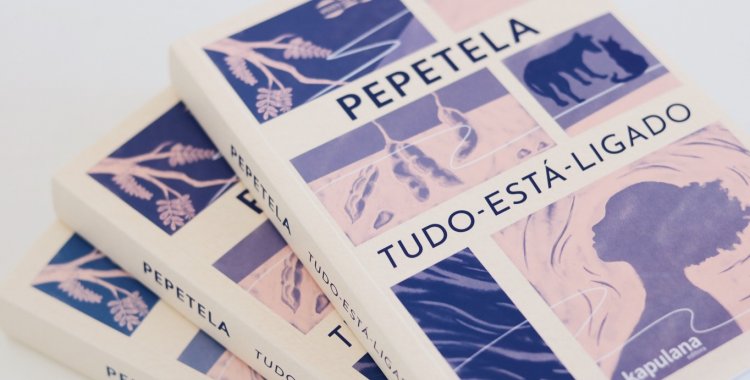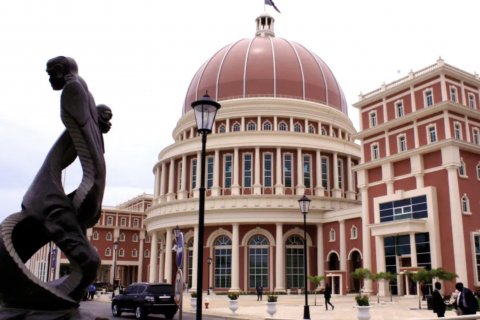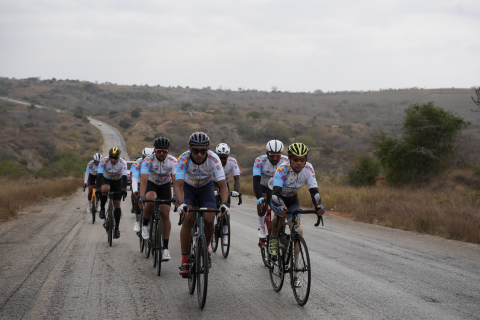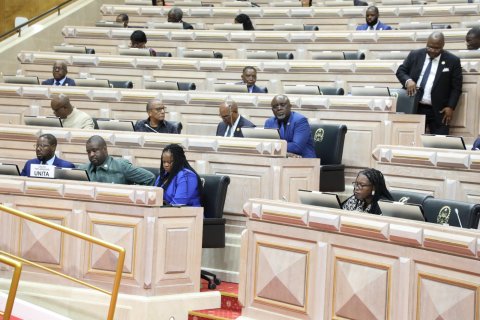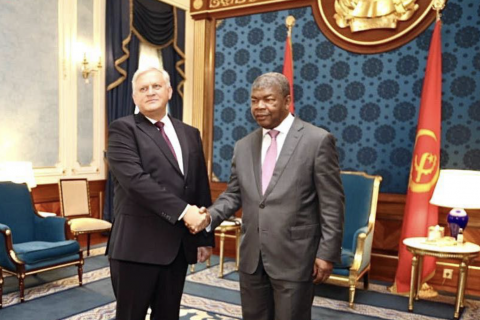“It is really time for not only Angolans, but Africans in general, to start thinking and working for themselves. It is time to stop always asking for advice from abroad,” the author told journalists on the sidelines of the launch session.
Advice that “was previously imposed” and is no longer imposed, “but ends up being asked for, [because] we are used to it,” said Pepetela, emphasizing that “it would be good to look inward for a while” and “think about our realities,” based on the African experience, without fear of being isolated.
At the launch session, the author reflected on the title of the book and the sense of connection between places and memories that permeates the narrative.
“Everything that happens should always be perceived in a global context,” he said, emphasizing that “Everything-Is-Connected” is an expression that goes beyond the novel and also serves as a key to reading the present.
The book, published in the country by Kacimbo, also by author Ondjaki, has as its protagonist Major Santiago, who, after an accident, returns to his childhood home in Benguela.
It is there, among family memories, unusual encounters with a dog and a cat, and the magic of African traditions, that he rediscovers a past interconnected with the present, on a journey that goes from the formation of kingdoms in the Central Plateau to the present day in Angola.
Pepetela shared that the title of the book resulted from an internal debate during the writing process and that the novel was supposed to be called “Santiago,” but he ended up making the connection between the various characters and realized that everything was connected.
He also revealed that the hyphens in the title generated resistance from publishers in Portugal and Brazil, but he decided to keep them as an essential element.
The city of Benguela, where he was born and lived until he was 17, appears as a central space in the narrative, illustrating the emotional connection with his childhood and the Angolan territory.
Pepetela, the literary pseudonym of Artur Carlos Maurício Pestana dos Santos, also highlighted the importance he gives to History and Sociology, which have always served as tools for literature, since “knowing the past is fundamental to understanding today’s society.
The work was published in three different versions: the original Angolan, the Portuguese and the Brazilian (adapted to the Orthographic Agreement). “But the real book is this one”, he said, referring to the edition already released in Angola.
When asked about the legacy he leaves for the future, he was direct: “Books”.
Pepetela, born in Benguela in 1941, is one of the greatest names in Angolan and Portuguese-speaking literature. He was a guerrilla fighter for the MPLA during the liberation struggle and later served as vice-minister of Education in the post-independence period.
His literary work, which began in the 1970s, addresses central themes of Angola’s history and identity in a style marked by historical realism, social criticism and elements of fantastic.
Pepetela was awarded the Camões Prize in 1997 and the Special Prize of the Critics of São Paulo in 1993, among other literary distinctions.

